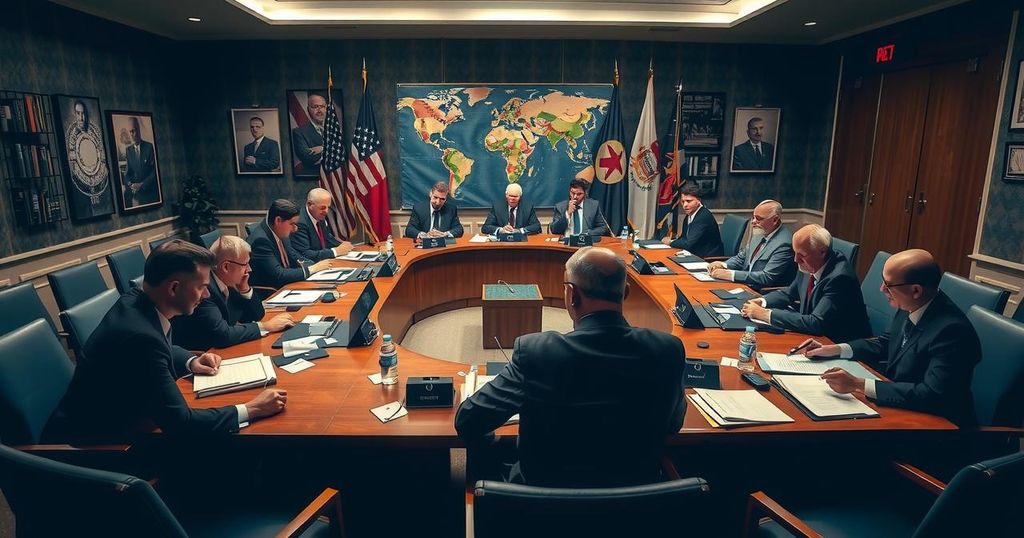The UN Security Council is set to hold an emergency meeting on Monday at Iran’s request due to escalating tensions following Israeli airstrikes on Iranian military sites. Iran has vowed to respond to these attacks, while Lebanon reports casualties from Israeli strikes. Iraq has also protested against Israeli actions violating its airspace, reflecting the wider ramifications of the conflict in the region.
The United Nations Security Council is convening an emergency meeting on Monday in response to a request from Iran following a series of events escalating tensions in the Middle East. This request, supported by several countries including China, Algeria, and Russia, comes in the wake of Israeli airstrikes targeting Iranian military sites after Iran’s attack on Israel earlier in October. Iran has publicly declared its commitment to utilize all available means to retaliate against Israel’s military actions. The statement from Esmaeil Baghaei, spokesperson for the Iranian Foreign Ministry, signals Tehran’s readiness to escalate its response. The situation is further complicated by the ramifications of an Israeli strike in the Lebanese city of Tyre, which resulted in at least five fatalities and multiple injuries, according to the Lebanese health ministry. Additionally, Iraq has lodged a formal complaint with the United Nations over Israel’s alleged use of its airspace to launch attacks on Iran, condemning such actions as a flagrant violation of Iraqi sovereignty. Iran’s Revolutionary Guards have issued stern warnings to Israel, indicating that the military will face severe consequences for its actions, with the commander, Hossein Salami, stating that Israel has miscalculated in its military engagement with Iranian forces involved in the conflict with militants in Gaza and Lebanon. Amidst these developments, the UN Security Council’s emergency meeting is set to address these escalating tensions and the broader implications for regional stability.
The tensions between Israel and Iran have been intensifying, particularly after recent military confrontations. The backdrop to the current crisis began with an attack on Israel attributed to Iran, prompting Israeli retaliatory strikes targeting Iranian military assets. These events have not only escalated direct confrontations between the two nations but have also involved other regional actors, including Lebanon and Iraq. Amid these hostilities, diplomatic efforts are resurfacing, with calls for ceasefires and discussions on humanitarian conditions.
The emergency meeting of the UN Security Council highlights the urgent need to address the violent confrontations stemming from the Israel-Iran conflict. As Iran and its allies assert their positions, and with various nations lodging formal protests, the potential for further escalation remains high. Continuous developments in this volatile situation require close attention from the international community to prevent broader conflict in the Middle East.
Original Source: www.france24.com






